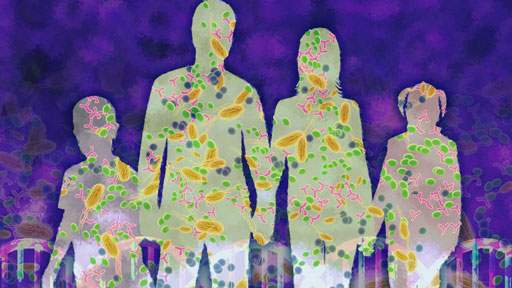Centers for Mendelian Genomics
The National Human Genome Research Institute funded the Centers for Mendelian Genomics (CMG) in 2011 with the charge to discover as many genes underlying human Mendelian disorders as possible. In doing so, the CMGs will define the state-of-the-art study designs and methods to find the variants and genes underlying Mendelian disorders.
Grantees
- Yale University CMG
- University of Washington CMG
Program Staff

Lisa H. Chadwick, Ph.D.
- Deputy Director
- Division of Genome Sciences

Chris Wellington, B.S.
- Program Director, Computational Genomics and Data Science
- Office of Genomic Data Science
Last updated: January 9, 2023



